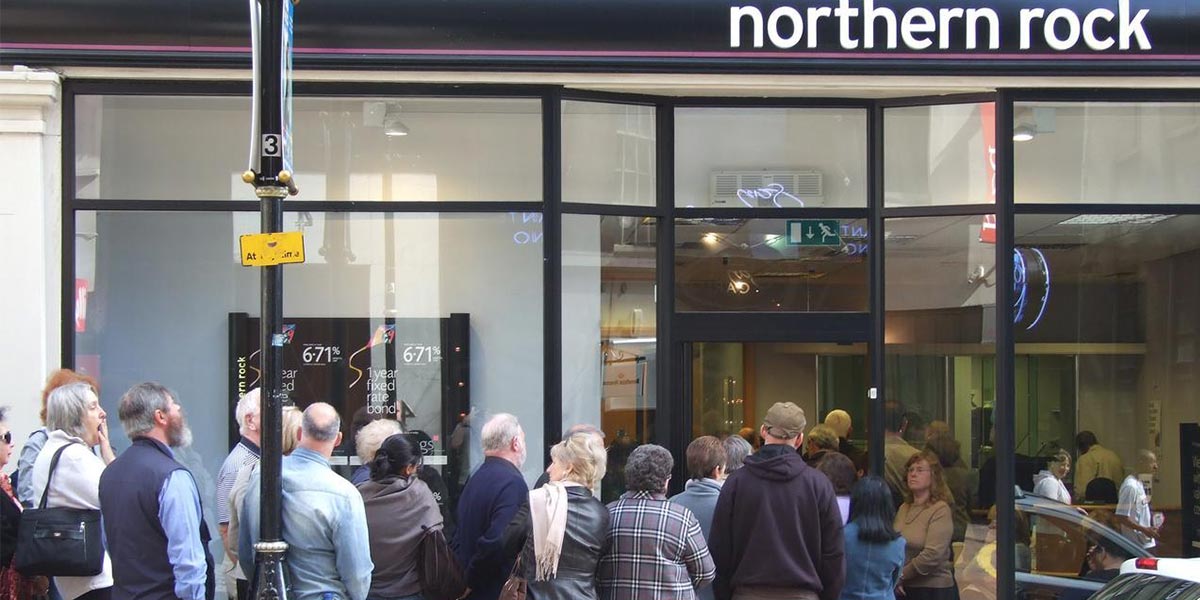UK financials – back from the brink
Ten years on from the nationalisation of virtually the whole UK banking sector, it’s now a much safer place to invest. Banks may not be the racy investments they were pre-crisis, but David Coombs, our head of multi-asset investments, explains why boring may be good when it comes to banks.

Last week I was wheeled into our mentee investment managers’ programme as the “wise old git” asked to deliver a session on idiosyncratic risk. During which I outline the types of risks that no amount of quant analysis can show up. To help illustrate this I described my own financial crisis while working for Barings Bank in 1995, when it failed due to the actions of a rogue employee. A systemic failure of controls and common sense helped facilitate the actions of Nick Leeson.
This of course was not on the same scale as the global financial crisis, but the same combination of a lack of common sense and controls, culture of greed and excessive risk taking was the root cause. In the UK who can forget the queues outside Northern Rock branches as it was considered small enough to fail!
Ten years on from the subsequent nationalisation of virtually the rest of the UK banking sector, banks are much safer. Today they hold much more capital and are tightly regulated to ensure depositor cash isn’t bet on red at the roulette table. And all the negative publicity and intervention has shaken out scores of dodgy dealings from mis-sold insurance to currency and rate manipulation.
It seems a distant memory now – when the gathering financial storm hit these shores with its full force, four weeks after the collapse of Lehman Brothers. It was Monday 13 October 2008 when the UK Government used £37 billion of recently assembled firepower to avert economic collapse with the unprecedented part nationalisation of Royal Bank of Scotland (RBS), Lloyds TSB and HBOS.
Chancellor Alistair Darling acted swiftly after being told by RBS Chairman Tom McKillop that the bank would run out of money that afternoon. Darling would recall that “this was not only the biggest [bank] in the world, it was about the same size as the entire UK economy.”
That was the low point.
The subsequent fallout has chastened these banks into becoming, well, much more boring and focused on their bread and butter: looking after retail and business customers and ensuring they do right by them. It’s less sexy, but way safer.
We’ve always felt this way about banks. That’s why we’re invested in US Bancorp. This was a company that stuck to this old-school banking model even through the heady days of the 2000s. When other banks were dreaming up crazy new product lines and figuring ways to juice returns, US Bancorp was focusing on ensuring it was lending to solid customers at decent rates. It never dabbled in sub-prime lending – this is pretty important as its higher credit rating with the agencies compared to other banks gives it a lower borrowing cost.
The old-school, boring approach has paid off: US Bancorp was one of the few large American banks to never post a loss throughout the financial crisis.
In a way the future of banking that people talk about is really just a return to the basics, and US Bancorp is already there. That gives it an edge, we believe. Today, US Bancorp is methodically expanding its branch networks into states it knows it can dominate and continuing to create reliable earnings for shareholders. Banks are never without risks – they tend to be tied to the economic cycle and especially sensitive to the housing market, which has cooled recently. But we believe US Bancorp has shown it has a resilient business model that shouldn’t collapse when times get tough.
US banks have deleveraged and focused more on areas of recurring revenues such as wealth management – for example, Northern Trust - while other banks around the globe are still recovering. Over the last decade, the MSCI World Financials index (which also includes better performing insurers, fund managers and wealth managers) has substantially underperformed the MSCI World index. And the MSCI index of UK financials is still some 20% off its pre-crisis peak.
For battered share prices, read also tumbling or disappearing dividends.
All five of the banks listed on the FTSE 100 index have cut or interrupted their dividend in some way. Over the last decade their average dividend growth rate is -18.6%. Even Barclays, a bank less scarred by the crisis than others, now yields 2.7%, compared to around 5% pre crisis.
Today, many advised or direct private investors probably still have substantial exposures to banks, if the typical index composition is anything to go by. The MSCI global index is comprised of 16.9% financials.
Banks today are certainly more tightly regulated. Many have slimmed down, shedding activities that in hindsight were deemed questionable. They have also deleveraged.
They’re now lending again, focusing afresh on servicing consumers and the small businesses that form the lifeblood of the economy.
Any sector will throw up winners and losers. Their challenges and opportunities faced by banks are very different from the broader financials they’re so often lumped in with in the index – and only a well-resourced active manager can hope to select those stocks with the best chance of long-term outperformance.
We don’t really favour UK banks, which we feel are lagging their US counterparts (not to mention Europe’s woes). UK banks’ credit, though, is more attractive to us, given the vast improvement in their balance sheets post-crisis.
So is it time to forgive the bankers? Don’t be ridiculous…but it is time to move on and back the facts.
